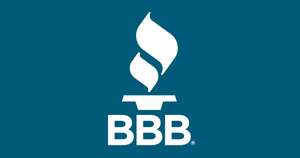Straight Talk: Protect yourself from IRS tax scams

Tax scams reappear each tax season with a slightly different spin. The central theme is scammers posing as the Internal Revenue Service in an attempt to trick people into paying or sharing personal information. Continue reading for a few of the most common tax scams and red flags to watch out for.
What is an IRS impersonation scam?
These tax scams may start with a phone call and take two primary forms. In the first version, the IRS "agent" says you owe back taxes and pressures you into paying with a prepaid debit card or wire transfer. If you do not comply, the scammer threatens you with arrest and fines. In the other version, scammers claim they are issuing tax refunds and ask you for personal information to send your refund. This information can later be used for identity theft. Scammers also use this approach to target college students by claiming a "federal student tax" has not been paid.
To appear real, the scammer may give a fake badge number and name. If it is a phone scam, your Caller ID may show that the call is coming from Washington, D.C. Con artists sometimes follow up scam calls with an email that uses the IRS logo, colors, and official-sounding language. These scams often start with a serious and official sounding “robocall” recording. Scammers typically try to push you into action before you have time to think. The IRS will allow you to ask questions or appeal what you owe. Also, their first contact with you will always be by mail, not by phone or email.
Scammers may also demand that payment be made by wire transfer, prepaid debit card, or other non-traditional payment methods because these methods are mainly untraceable and non-reversible. The IRS will never demand immediate payment, require a specific form of payment, or ask for a credit card or debit card number over the phone. The IRS may call you about outstanding debts after reaching out through a letter in the mail.
Tax identity theft scams: Tax identity theft occurs when a scammer uses your Social Security number to file a tax return in your name and collect your refund. It can also be someone using your information to get a job. Consumers may not realize they have been a victim until they get a written notice from the IRS saying that more than one tax return was filed, or they were paid by an employer they do not know.
Email phishing scams: These emails appear to be from the IRS and include a link to a bogus website intended to mirror the official IRS website. The emails state, “You are to update your IRS e-file immediately,” and may mention USA.gov and IRSgov (without a dot between "IRS" and "gov").
In a recent BBB Scam Tracker report, a consumer shared an example of a tax email phishing scam. “Received an email telling me that after annual calculations of my fiscal activity I was eligible to receive a tax return of $976.00. At the bottom it recommended using a prepaid card because sending funds does not support this card. Within the email was a link for a Tax Return Form.”
Mailing scams: The IRS warned taxpayers of a new mailing scam that tricks victims into believing they are owed a tax refund. In this scam, taxpayers receive a cardboard envelope from a delivery service, which includes a fake letter from the “IRS” about an unclaimed refund and asks for personal and financial information.
Tips to avoid tax scams
• File your taxes as early as possible before a scammer can use your information to file a fake return.
• Jot down your Identity Protection PIN from the IRS before you file your return. This is a six-digit number confirming your identity and your Social Security number. You must provide it each year when you file your federal tax returns. The IRS will send you a new IP PIN each December by postal mail.
• Remember, the IRS contacts taxpayers only by mail. The Internal Revenue Service does not email, text or use social media to request personal or financial information.This includes requests for PIN numbers, passwords or similar access information for credit cards, banks, or other financial accounts.
• Only deal with trustworthy tax professionals and tax preparation services. For many people, significant life changes, business ownership, or simply a lack of knowledge about the ever-changing tax laws make finding a trustworthy tax preparer a good idea. That said, not all tax preparers have the same level of experience and training.
• Review websites carefully, and watch for bad grammar and odd punctuation in emails and letters.
• When in doubt, contact the IRS to confirm any contact you receive is legitimate. If you are the victim of tax identity theft, contact the IRS at 1-800-908-4490 and file a complaint with the Federal Trade Commission at ftc.gov/complaint.
• Treat electronic information carefully. If your employer or another entity delivers tax information electronically, download it onto a password-protected computer.
FOR BBB INFORMATION – Visit BBB.org or call us at 330-454-9401 to look up a business, file a complaint, write a customer review, read tips, find our events, follow us on social media, and more.
This article originally appeared on The Alliance Review: Don't fall for IRS impersonation scam this tax season
